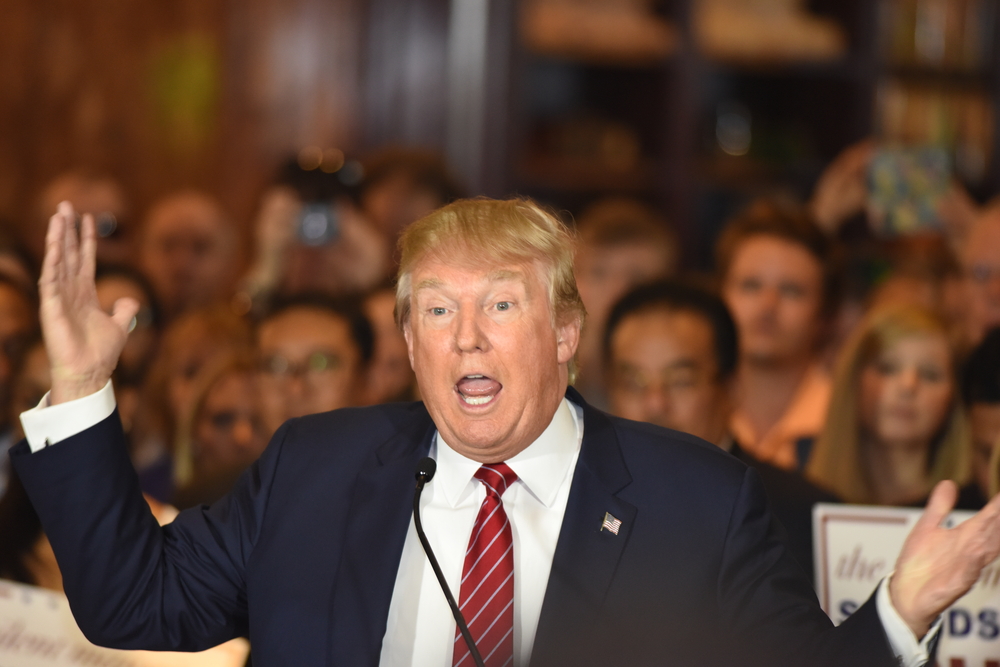Trump backs down from 'impenetrable cyber unit' with Russia


Only 13 hours after floating the idea of forming an "impenetrable Cyber Security unit" alongside Russia that would prevent "election hacking", United States President Donald Trump has backed away from his previous statement.
"The fact that President Putin and I discussed a Cyber Security unit doesn't mean I think it can happen. It can't," Trump said on Twitter on Sunday night US time.
Tweeting after his first meeting with Russian President Vladimir Putin on Friday, Trump said now is the time to work constructively with Moscow.
"Putin & I discussed forming an impenetrable Cyber Security unit so that election hacking, & many other negative things, will be guarded and safe," Trump wrote on Twitter earlier in the day.
Three Republican senators -- Lindsey Graham of South Carolina, John McCain of Arizona, and Marco Rubio of Florida -- blasted the idea.
"It's not the dumbest idea I have ever heard, but it's pretty close," Graham told NBC's Meet the Press program.
"There has been no penalty," McCain, who chairs the Senate Armed Services Committee, told CBS' Face the Nation program. "Vladimir Putin ... got away with literally trying to change the outcome ... of our election.
"Yes, it's time to move forward. But there has to be a price to pay."
Rubio, on Twitter, said: "Partnering with Putin on a 'Cyber Security Unit' is akin to partnering with [Syrian President Bashar al] Assad on a 'Chemical Weapons Unit'."
Trump argued for rapprochement with Moscow in his campaign, but has been unable to deliver because his administration has been dogged by investigations into the allegations of Russian interference in the election and ties with his campaign.
Those probes are focused almost exclusively on Moscow's actions, lawmakers and intelligence officials say, and no evidence has surfaced publicly implicating other countries despite Trump's suggestion that others could have been involved.
Moscow has denied any interference, and Trump said his campaign did not collude with Russia.
Representative Adam Schiff, the top Democrat on the House Intelligence Committee, told CNN's State of the Union program that Russia could not be a credible partner in a cybersecurity unit.
"If that's our best election defence, we might as well just mail our ballot boxes to Moscow," Schiff added.
Secretary of the Treasury Steven Mnuchin told ABC This Week that he believes the proposed partnership with Russia is an important step forward.
"We want to make sure that we coordinate with Russia, that we are focused on cybersecurity together, that we make sure that they never interfere in any democratic elections," he said.
"This is like any other strategic alliance -- whether what we are doing is military exercises with our allies or anything else, this is having capabilities to make sure we both fight cyber together.
"Which I think is a very significant accomplishment for President Trump."
Last month, former FBI director James Comey said hundreds of attacks were carried out by Russia in the lead up to the American 2016 presidential election, and that he was in no doubt that Russian attacks were designed to influence the outcome of the election.
Putin said in June that his country does not conduct hacking activities, but that patriotic Russians might strike out and attack others.
"Hackers are free people, just like artists who wake up in the morning in a good mood and start painting," Putin said at the time.
"The hackers are the same. They would wake up, read about something going on in interstate relations, and, if they feel patriotic, they may try to contribute to the fight against those who speak badly about Russia."
Despite the US stating in October that Russia was behind the hacking of Democratic Party emails, Putin said hackers cannot have a "radical impact" on the elections of other countries.
Last week, NATO Secretary General Jens Stoltenberg said the collective defence article in the North Atlantic Treaty could be invoked in the face of a cyber attack.
"We have also decided that a cyber attack can trigger Article 5 and we have also decided -- and we are in the process of establishing -- cyber as a military domain, meaning that we will have land, air, sea, and cyber as military domains," he said.
With AAP